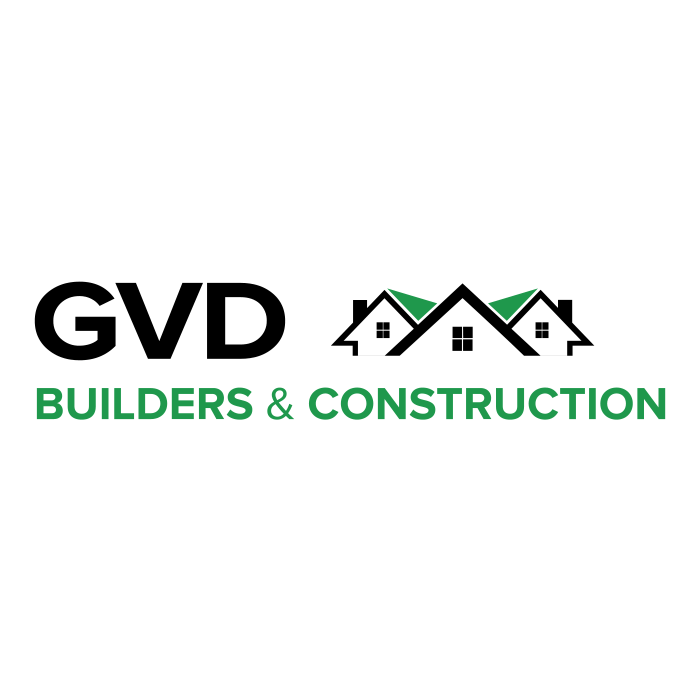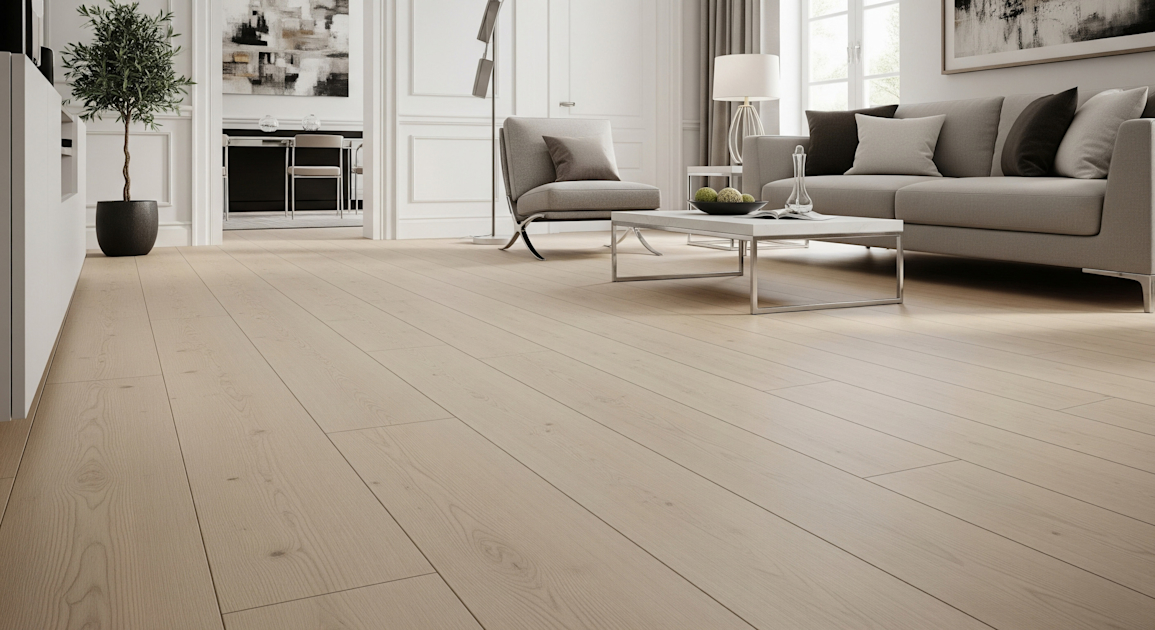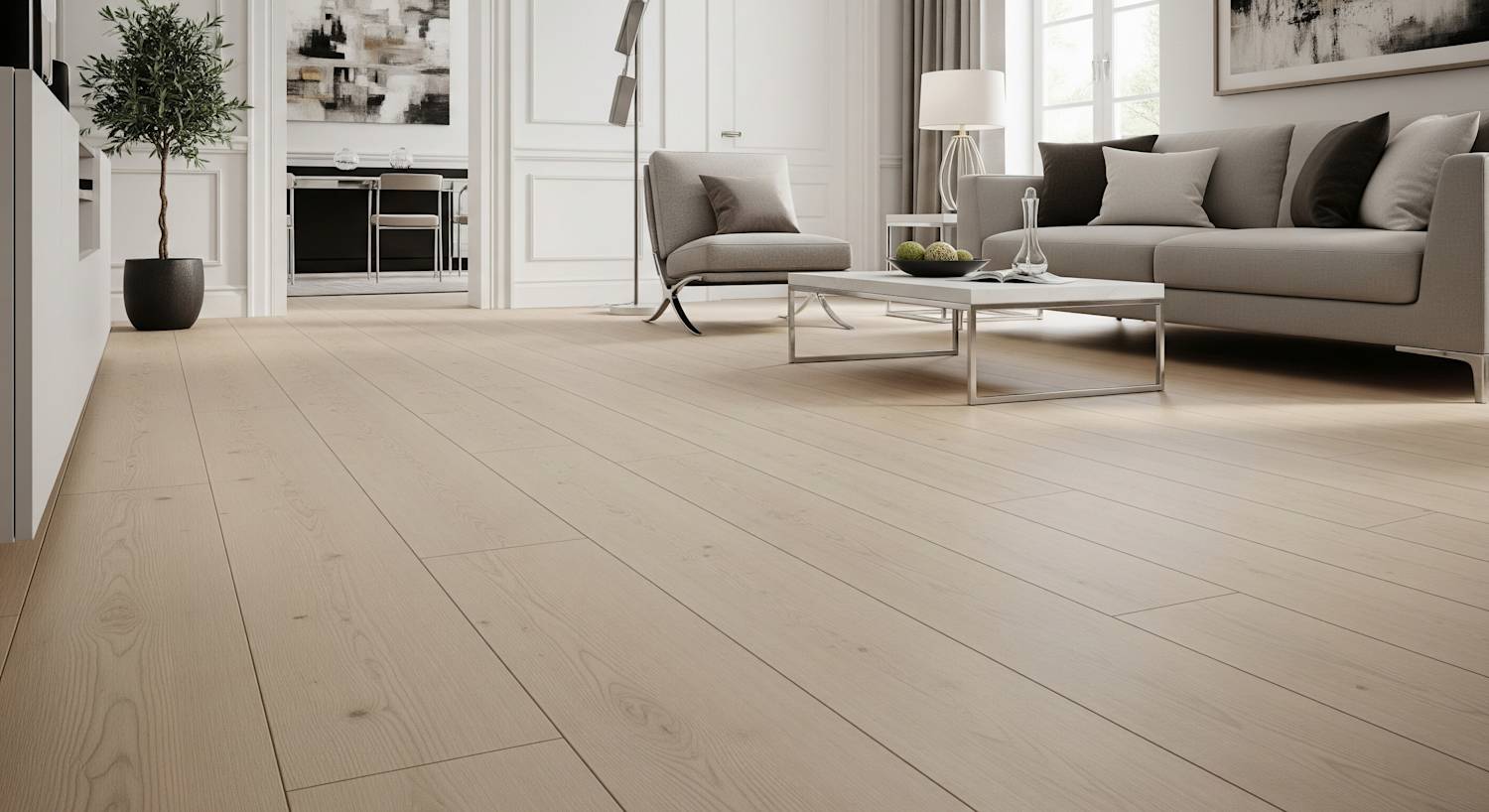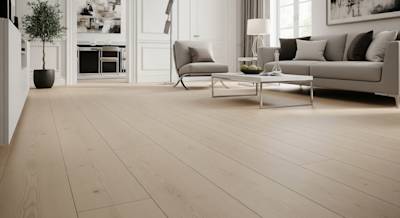When homeowners embark on a home renovation journey, selecting the ideal flooring option forms a monumental part of the discussion. Two of the most trusted choices currently are engineered wood flooring and hardwood flooring. Unfortunately, the question on many homeowners' minds still remains — which is the better option for me? This informative guide aims to dissect and discuss Engineered Wood Flooring vs Hardwood, enabling you to make an informed decision toward your dream home.
Understanding Engineered Wood
Engineered wood flooring came as a game-changer in the wood flooring industry, offering a myriad of benefits and bringing a thrilling experience to homeowners around the world. Essentially, engineered wood is a layered product made up of a top layer of hardwood affixed to high-quality plywood built layer-by-layer in opposite ways. This design enhances durability, makes it moisture-resistant and affordable.
Components of Engineered Wood
Engineered wood consists of:
- A thin top layer of hardwood
- A core of high-quality plywood
- Multiple layers of plywood stacked oppositely
The Quintessence of Hardwood
Hardwood remains a traditional homeowner favorite, encompassing a rich and authentic design. Constructed entirely from a single piece of wood, it's loaded with natural beauty and durability. It’s worth mentioning that hardwood flooring is available in various wood species providing choices from oak to Brazilian cherry.
Components of Hardwood
Hardwood is comprised of:
- A single, solid piece of natural wood
Scrutinizing Style and Appearance
Engineered Wood Style and Appearance
Engineered wood offers you a wide array of options when it comes to wood species, colors, and finishes. This flooring gives you the best of both worlds, a combination of practicality and style that can stunningly transform your space.
Hardwood Style and Appearance
The natural distinctiveness of hardwood is unquestioned, giving your home a classic, timeless look. Though the extent of available choices is a little less diverse compared to engineered wood flooring, the authenticity of the look can't be overemphasized.
Durability and Maintenance: A Closer Look
Durability of Engineered Wood
Engineered wood lives up to its name, having been "engineered" for superior strength. The multiple layers rendering it moisture-resistant makes it incredibly durable and suitable for any room in your home, including moisture-prone areas like the basement or kitchen.
Maintenance of Engineered Wood
Engineered wood proves quite easy to clean and maintain. However, its ability to withstand sanding and refinishing depends on the thickness of the top layer.
Durability of Hardwood
Hardwood displays unbeatable longevity. Its structure allows it to endure heavy foot traffic, though it's susceptible to moisture and humidity changes, which might cause it to warp over time.
Maintenance of Hardwood
Hardwood requires a bit more tender love and care, demanding regular sweeping, drying of spills, and occasional polish. Despite this, it can be sanded down and refinished multiple times without losing its charm.
Cost Implication
Despite their differences, both engineered wood and hardwood are firmly high-end options with comparable costs. The expenses vary based on the wood species chosen, and in both cases, exotic woods demand higher prices.
Environmental Impact
Engineered Wood and the Environment
Engineered wood is more sustainable and environmentally friendly compared to its counterpart. This is due to the fact that the plywood base is often crafted from fast-growing, less expensive species.
Frequently Asked Questions about Engineered Wood Flooring Vs Hardwood
Are there distinct visual differences between Engineered Wood Flooring and Hardwood?
Aesthetically speaking, engineered wood flooring and hardwood can look almost identical. Once installed, without a trained eye, it might be hard to tell the difference. This is because the top layer of engineered wood flooring is often made from a thin slice of hardwood. But the difference could be spotted on a side or cross-cut, where the layers or ply's of the engineered wood would be visible.
How does Engineered Wood Flooring compare to Hardwood in terms of cost?
Typically, engineered wood flooring is less expensive than hardwood. The cost varies depending on the type, brand, and grade of the engineered wood you choose. Of course, there are higher-end engineered wood options that are more expensive, just as there are less expensive hardwood options. However, in general, hardwood tends to be a pricier choice.
Which is more durable: Engineered Wood Flooring or Hardwood?
Durability can often be a moot point when comparing engineered wood to hardwood because it largely depends on the thickness of the top veneer. Both types of flooring can be equally durable. However, if we are considering the ability to be refinished, then solid hardwood flooring usually has the edge because it can be sanded down and refinished several times. Engineered wood flooring can only withstand limited amounts of refinishing, depending on the thickness of the top layer.
Can Engineered Wood Flooring and Hardwood be used in the same areas?
Yes, they can be used in the same areas. However, engineered wood flooring is recommended in places that experience high moisture levels, like basements or bathrooms, areas where hardwood flooring might warp or swell. This is because engineered wood flooring is designed to resist higher levels of humidity and fluctuations in temperature.
What are the maintenance differences between Engineered Wood Flooring and Hardwood?
The maintenance of engineered wood flooring and hardwood is quite similar. Both require regular sweeping or vacuuming and occasional deep cleaning. However, hardwood floors can be refinished multiple times, allowing homeowners to remove surface scratches or refresh the finish. Engineered wood can also be refinished, but the number of times will be limited by the thickness of the top layer of wood.
How does the installation process of Engineered Wood Flooring compare to Hardwood?
When it comes to installation, engineered wood flooring is usually easier and more versatile. It can be stapled, glued, nailed, or even floated, whereas hardwood typically requires nailing. Furthermore, engineered wood flooring can be installed over concrete, a surface where installing hardwood is not usually recommended.
How are repairs handled between Engineered Wood Flooring and Hardwood?
When it comes to repairs, hardwood is typically easier to deal with because it can be sanded down and refinished. If engineered wood flooring gets severely damaged, often, the only recourse is to replace the affected boards.
Pros of Engineered Wood Flooring
Excellent Stability
Resistance to Warping
Engineered wood flooring is designed with multiple layers of wood, each layer positioned in a different direction. This cross-layered arrangement imparts stiffness and stability making it resistant to warping and twisting under changing temperatures and humidity.
Ideal for Varied Conditions
Engineered wood flooring performs well in areas of your home with higher humidity and fluctuating temperatures. It's ideal for basement installations or over concrete slab or radiant heating systems.
Versatile Installation
Floating Installations
With a tongue and groove installation system, engineered wood floorings can be installed as a "floating floor" and does not require nails or glue.
Direct Installment on Concrete
Unlike solid hardwood, engineered wood can be installed directly over concrete.
Cost-Effective
More Affordable
Engineered flooring tends to be less costly when compared to solid hardwood flooring.
Less Maintenance
The cost of maintaining engineered floors is generally lower as they are less prone to damage and easier to clean.
Aesthetic Appeal
Variety of Styles and Colors
Engineered wood flooring comes in almost as many styles and colors as solid hardwood, thereby providing a wide selection for homeowners.
Parity with Hardwood
High-quality engineered wood can look just as attractive and indistinguishable from solid hardwood, giving your home a sophisticated look.
Cons of Engineered Wood Flooring
Limited Durability
Less Lifespan
Although engineered wood flooring is durable, it doesn't last as long as hardwood flooring.
Lesser Refinishing
Engineered floors may not withstand repeated sanding and refinishing due to the thin top layer of wood.
Lower Resale Value
Despite its high-quality appearance, engineered wood flooring may not add as much value to your home as solid hardwood.
Vulnerable to Moisture
If exposed to significant amounts of water, engineered wood can warp or bubble, damaging it.
Pros of Solid Hardwood Flooring
Long-Lasting Durability
Generations-Long Lifespan
Hardwood floors can last for hundreds of years if properly maintained.
Multiple Refinishing
Solid hardwood can be sanded and refinished many times, ensuring a fresh and timeless look.
Superior Aesthetic Appeal
High-End Look
Hardwood floors are synonymous with a luxurious, high-end aesthetic and can significantly enhance the appearance of your home.
Unique Characteristics
Each hardwood floor has unique grain patterns guaranteeing a floor unique to your home.
Increase in House Value
High Resale Value
Solid hardwood floors promise a great return on investment. They are seen as a valuable addition to homes, increasing resale value.
Environmentally Friendly
Sustainable
Hardwood trees grow slowly and are replanted making them a sustainable resource.
Cons of Solid Hardwood Flooring
High Cost
Expensive
Solid hardwood floors are costly. The cost of the wood and installation can be significantly higher than engineered wood flooring.
Poor Moisture Resistance
Warping Risk
Because hardwood expands and contracts due to changes in temperature and humidity, it is prone to warping and cupping.
Limited Installation
Not Suitable Everywhere
Unlike engineered wood, hardwood cannot be installed in damp places like basements or directly on top of concrete.
Maintenance
Requires More Maintenance
Hardwood floors need to be swept or vacuumed regularly to prevent scratches and they need to be refinished periodically to keep up their appearance.
Summary
To the average eye, it might be hard to distinguish between engineered wood flooring and hardwood. Indeed, "Engineered Wood Flooring vs Hardwood" is a subject that requires a keen comprehension of wood species, construction, longevity, maintenance, and of course, budget. Although hardwood flooring brings a timeless allure and longevity, it's worth noting the rising popularity and practicality of engineered wood flooring as an alternative. Elegant, durable, and cost-effective, engineered wood offers a counterpoint to traditional hardwood that shouldn't be overlooked.
On the other hand, hardwood flooring has withstood the test of time and continues to be a favorite among homeowners. Its resilience, natural beauty, and outright longevity ensure its place in the grand scheme of flooring options. While engineered wood flooring strives to emulate most of these features, the authenticity and unadulterated charm of hardwood is something to reckon with. Both have their pros and cons, and your choice largely depends on your property's specific needs and your personal taste.
Comparing engineered wood flooring vs hardwood, it becomes apparent that each has its unique appeal and notable drawbacks. From cost implications to installation techniques, durability, maintenance, and adaptability to varying climatic conditions, both flooring types present varying degrees of viability. The key to choosing the right one lies in understanding your home’s specific demands and aligning them with your aesthetic preferences and budget provisions. Hence, despite the rivalry, either could emerge a winner, but it largely hinges on the home they are set to grace.
About GVD Builders
GVD Builders is your go-to construction buddy situated right in the heart of Sacramento, CA. With a sturdy foundation rooted in this beloved community since 2007, our expertise is all about turning your dream homes and renovation visuals into a gratifying reality. As a family-owned company, we cherish the lasting relationships we've built with each project, capturing a little bit of our clients' hearts in bricks, mortar, and some splashes of color. Whether it's revamping your kitchen, adding an extra room, or building an entirely new space, we provide top-tier excellence in service, efficiency, and end results. Rest assured, with GVD Builders, you're not only investing in property but also the promise of a love-built home. Building dreams, one brick at a time.
The content provided here is intended for informational purposes only and should not be considered professional advice. We recommend consulting with a qualified specialist before making any decisions related to your project. Pricing, product availability, and specifications are subject to change without notice. Any references to specific brands or products represent our opinions and do not constitute official endorsements or guarantees of performance.



